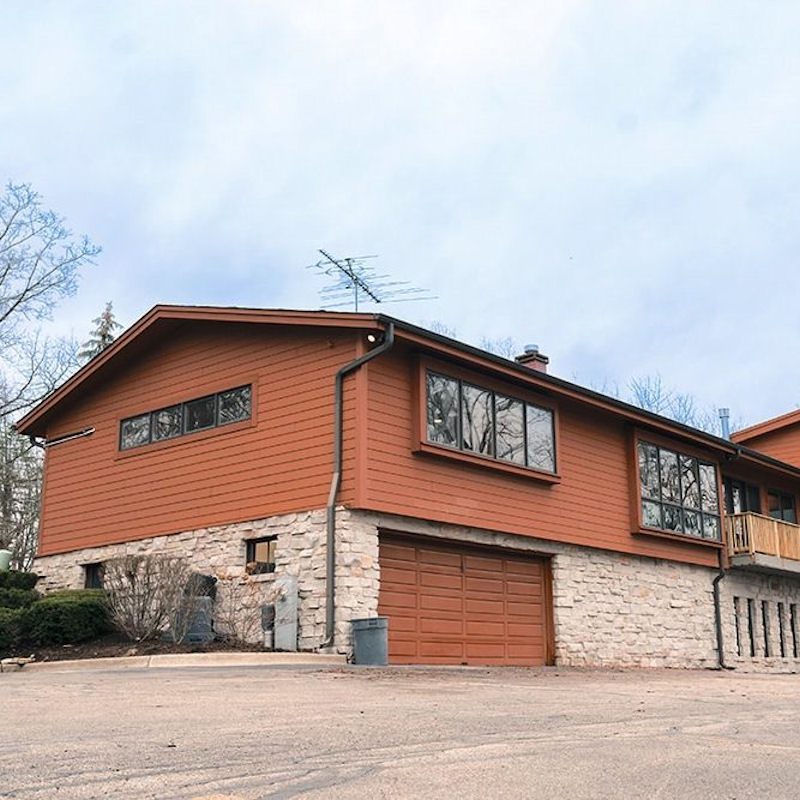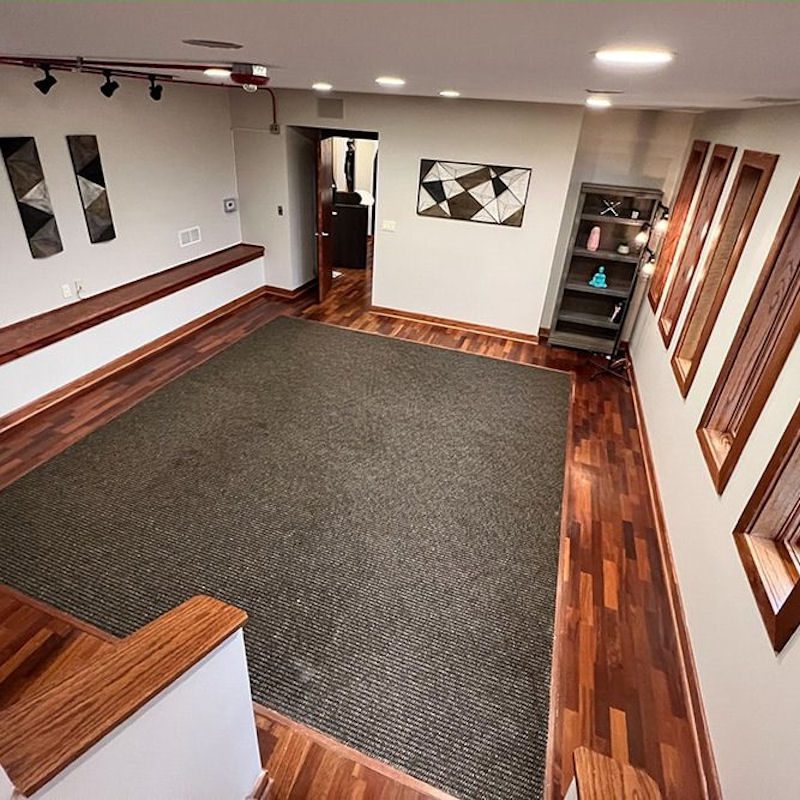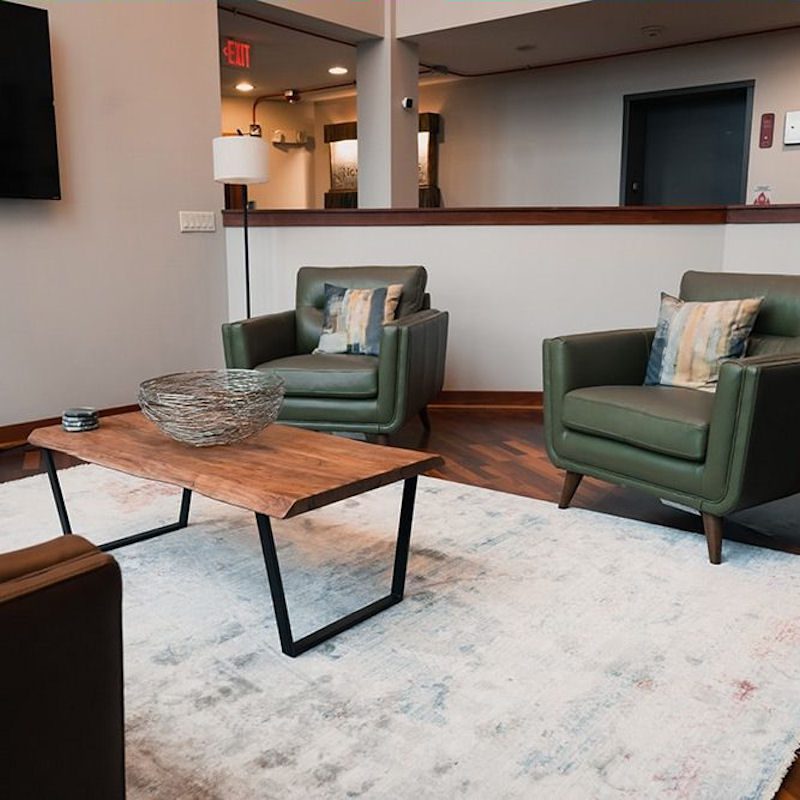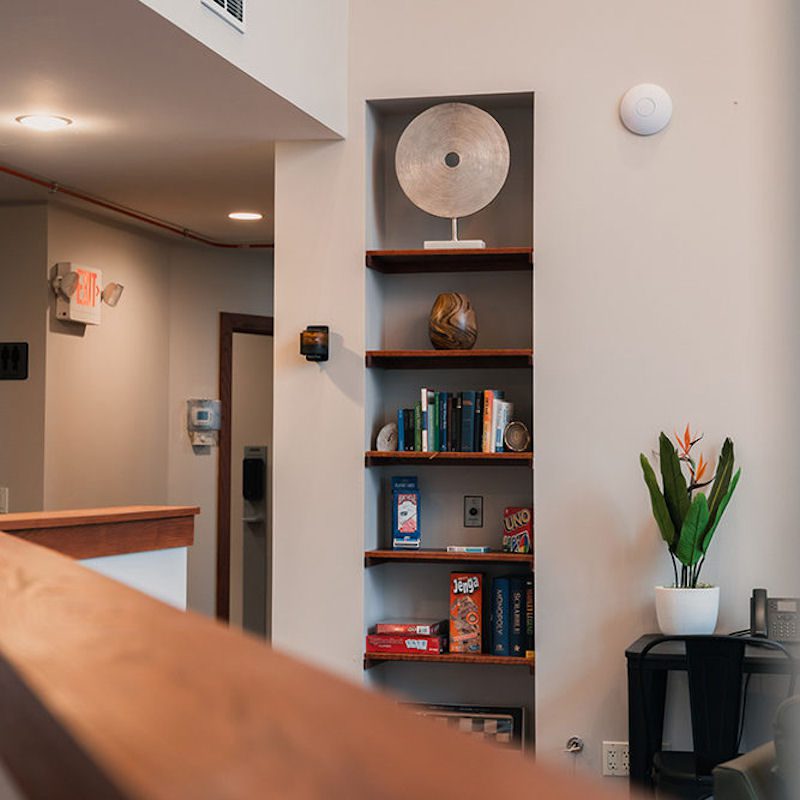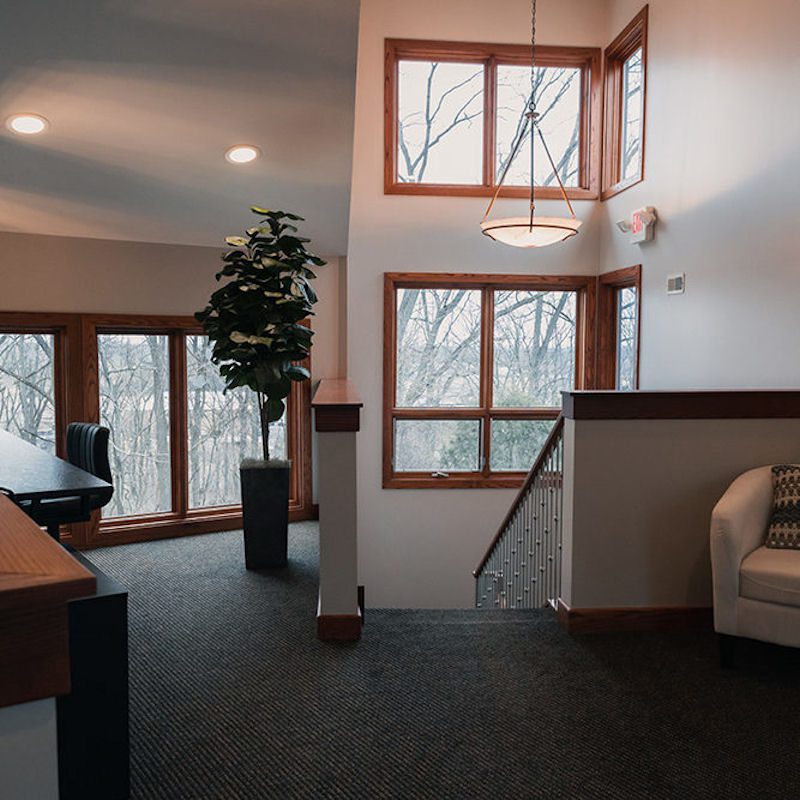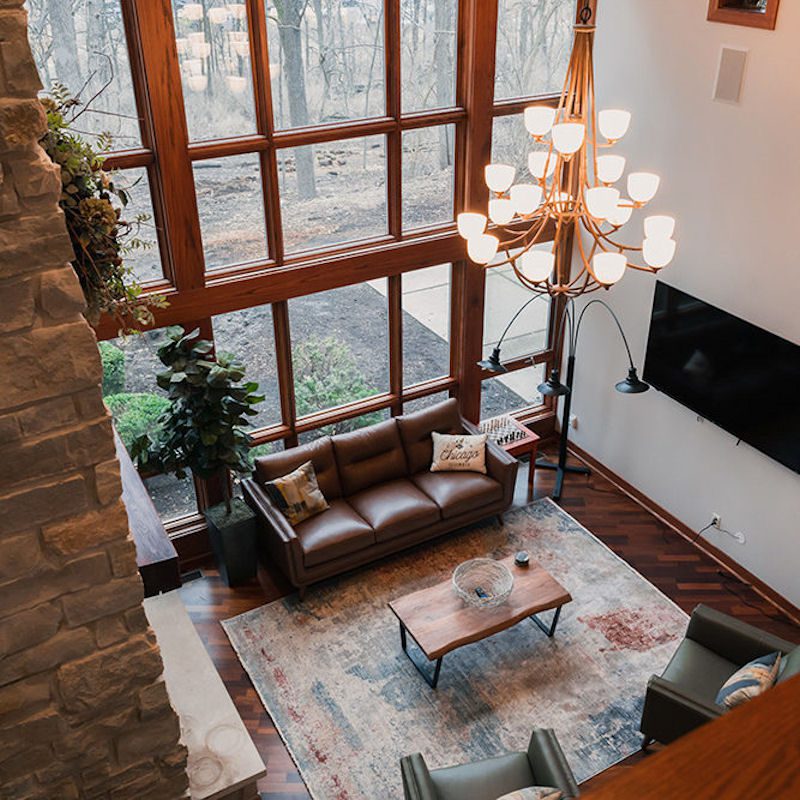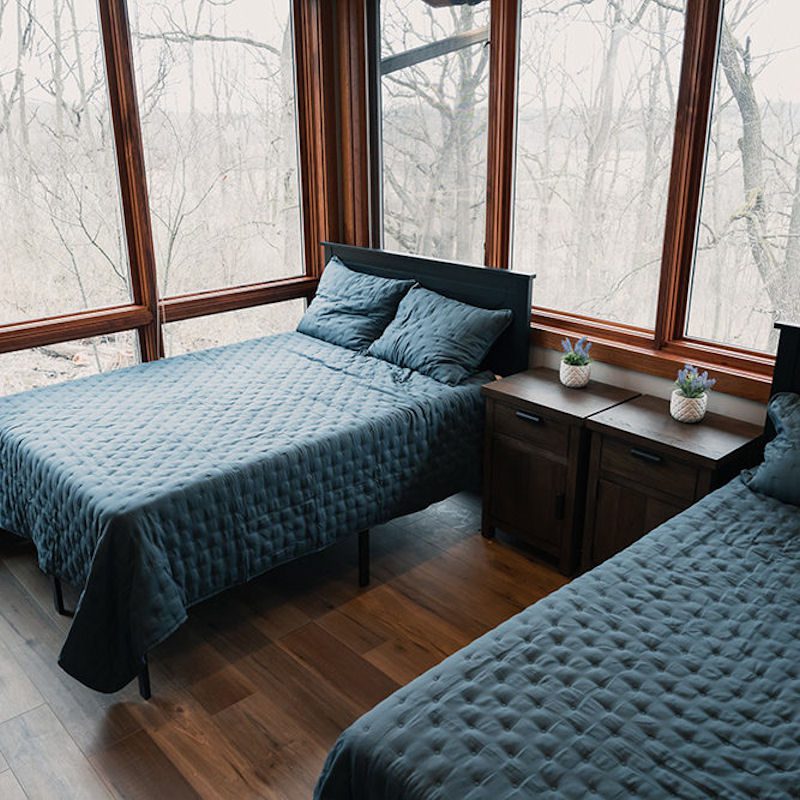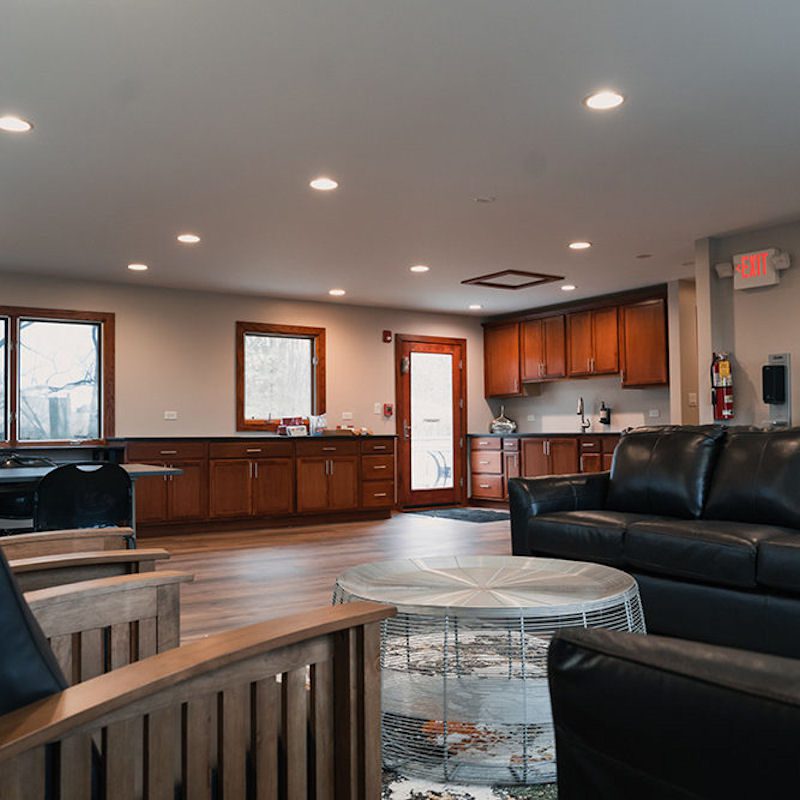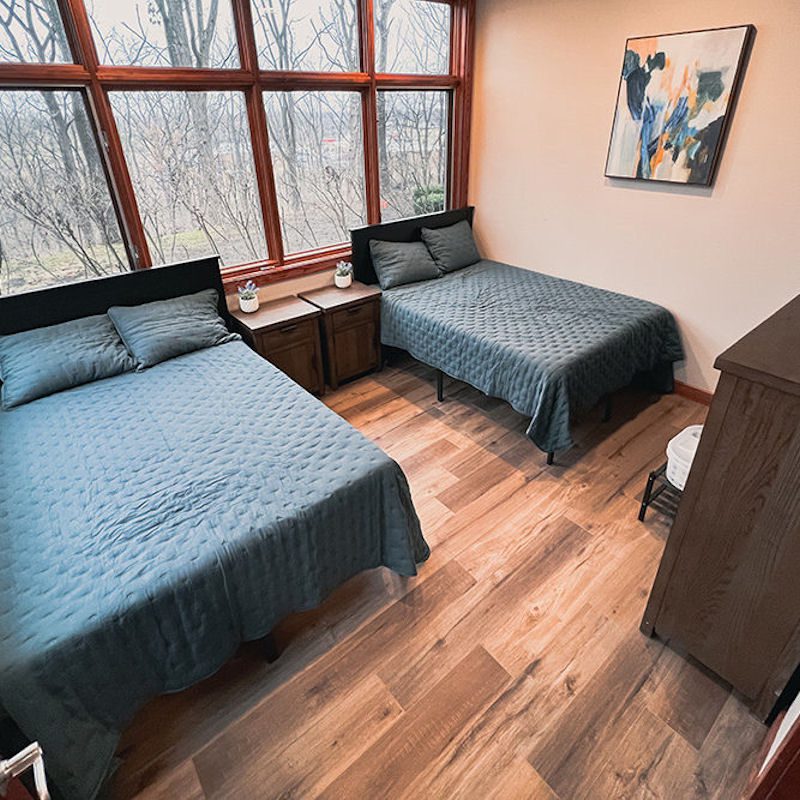Residential Inpatient Drug and Alcohol Rehab in Illinois
In the early days of addiction recovery, many people find staying free of drugs and alcohol to be challenging. If they’ve been using these substances heavily for an extended period of time, these initial days can bring cravings, triggers, and temptations. Fortunately, with the help of the residential treatment center at Northern Illinois Recovery, clients can find support during this challenging but critical recovery period. During their stay at our recovery center, clients have the assistance of our kind and compassionate team as they work towards a healthier lifestyle.
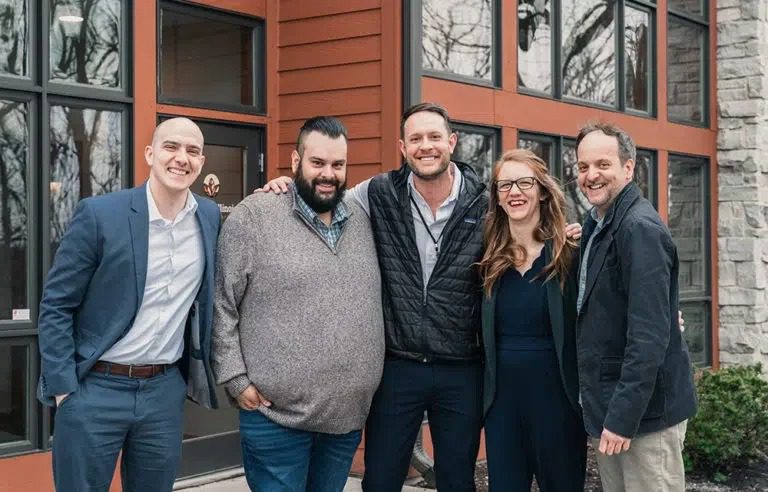
Jump to Section
The Process of Entering Inpatient Rehab
- Call the facility to discuss the program and insurance and payment options. At this time you’ll also discuss with the admissions team when you’ll be coming to the facility or if you’ll need to attend a detox program first.
- Arrive at the facility and begin the process of being evaluated. During your initial arrival, you will discuss any current medical conditions, your substance use history, and if you’ve attended treatment previously.
- You’ll be provided a room and a schedule of therapies and other activities that are meant to promote a successful recovery. Each person receives an individualized treatment plan to support this initiative.
By learning about what to expect in an inpatient treatment center in Illinois, anxiety is bound to be alleviated, and it’ll better help you make the necessary decision to seek help. Here at Northern Illinois Recovery Center, we pride ourselves in providing a peaceful and supportive environment to instill in you the support needed during the recovery process. By knowing what to expect, a sense of intimidation is removed and residential treatment centers are seen as an inviting opportunity to heal graciously.
When thinking of the importance of seeking help from drug and alcohol rehab treatment centers, it’s essential to know the facts. In 2021, over 106,000 people died from drug overdose deaths, according to the CDC. This number has been rising, and deaths involving fentanyl are also rising at a very high rate. There is no time like the present to seek a different lifestyle geared to enhance your overall well-being.
What is A Residential Substance Abuse Treatment Experience?
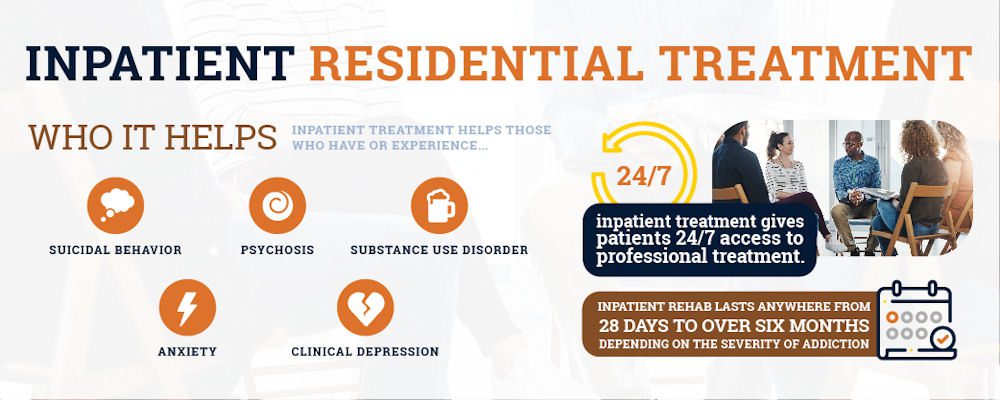

The inpatient treatment experience will vary for each individual. The actual decision to seek inpatient substance use disorder treatment in Chicago, IL should not be viewed lightly because it does not come easy. When a task does not come easy but provides behavioral health benefits and substance use and mental health freedom, it is so worth it.
What To Expect At Our Inpatient Treatment Center
When a client enrolls in our residential treatment center, they commit to staying at our campus 24/7 for about 30 days. This time may be shorter or longer than that, depending on how quickly the client progresses through treatment and their unique challenges. During their stay, our team members will design a recovery journey that we tailor to their client’s challenges and strengths.
Unlike other treatment centers, we recognize that a cookie-cutter approach is not an effective method of treating alcohol and drug addiction. Every client has their own goals surrounding addiction services whether they want to learn how to repair and maintain healthy relationships with friends and family or how to manage mental health issues. We strive to understand each client’s goals so that we ensure that they receive customized treatment plans.
Therefore, during their stay at our inpatient facility, most clients participate in a variety of treatment options and holistic behavioral health options.


Clinical Director
At NIRC, we offer a seamless continuum of care. Therefore, whether you are dealing with drug or alcohol addiction – we provide catered services. Our inpatient drug rehab consists of therapies and programs that provide consistent success within our clients in regards to long term recovery.
At NIRC, we take pride in our ability to find a unique path to recovery for all of our clients. When it comes to our inpatient alcohol program, we have found treatment modalities that put our clients in the best position for their recovery.
Following a successful alcohol detox, our clinical director and other medical professionals help each client determine the best fit for them within our continuum of care at our alcohol rehab facility.
Our Evidence-Based Practices
- Cognitive behavioral therapy
- Dialectical behavior therapy
- Individual Counseling for Substance Abuse
- Group therapy
- Family therapy
- Yoga therapy
- Art therapy
- Medication-assisted treatment (therapy)
- Commitment therapy
- Recreational therapy
- Music therapy
- Mental health services
- Support groups
Through these therapeutic modalities, clients will work with our team members to understand and find relief from life’s challenges and stressors. We provide continuous compassion and support from both our clinicians and our other residents, enabling clients to make life-long changes. It’s important to understand and know that you are not alone throughout this journey.
Testimonials
Lengths of Inpatient Rehab in Illinois


This program is a superb way to jumpstart recovery from substance misuse. You might not be super clear on how long to stay in residential care, so this program will be better able to provide insight and lay a foundation. It will give you substantial time to overcome any physical side effects of drug withdrawal and allow time to begin creating and establishing relapse prevention methods.
The 30-Day Program allows the individual struggling with substance use disorders and mental health issues to fully define a course of aftercare treatment going forward. It’s the easiest part of inpatient care to commit to because it’s the shortest period of time. Typically, this program will be offered at the lowest cost, so many private health insurance programs will cover expenses.
This residential program in Illinois provides the benefit of allocated time and support throughout the entire treatment process. In this program, there will be time to focus on recovery and therapy sessions will be provided to understand what (like a mental health condition) could have contributed to any habit-forming behavior.
A 60-day program will grant you more adequate time to fully recover from drugs and alcohol addiction, and begin to practice positive and healthy habits actively to help an individual maintain sobriety. Though not all insurance plans might not cover the 60-day programs, many inpatient facilities in Illinois will allow smaller monthly payments to be made.
This residential program in Illinois might present to be frightening at first. As previously mentioned, the longer a person stays in treatment, the greater chance they will have at maintaining sobriety while in recovery. The 90-Day programs have shown the highest success rates of all three programs.
In the 90-day programs, the journey will begin with intake and evaluation, detox, therapy, self-help groups, and an aftercare plan will be established. This program is exceptional because it gives more time to adjust to life without drugs and alcohol. There will be opportunities to completely strengthen skills that will later be able to identify any potential triggers clearly and resist any temptations in the future that might present themselves.
The 90-Day Program is recommended for the following individuals:
- Anyone suffering from serious and complicated addictions
- Those individuals who have had long-term addictions
- People who require dual diagnosis treatment for complex mental health disorders
- In cases of chronic addiction where other forms of addiction and mental health services have not worked
Extended Care Options for Mental Health Disorders
In some scenarios, additional care might be needed for an individual struggling with more serious addiction and mental health circumstances. You might find it fitting to enter into a more structured home environment while you continue to stabilize your long-term sobriety. There are numerous additional programs available where you can completely immerse yourself such as outpatient programs.
Sober Living Program
A sober living house offers an affordable, drug and alcohol-free environment where you’re able to work through your recovery plan and find endless support in the peers surrounding you. Sober living programs are seen as the additional step when an individual isn’t quite ready to dive back into the real world yet and is seeking that extra structure and support. Once ingrained into a sober living environment, you’ll learn how to be successful with the skills acquired.
FAQ
Typically inpatient care lasts anywhere from 30 to 90 days. Some programs may last longer but it depends on the person and what’s best for their recovery process. It’s not uncommon for people to stay longer than 90 days or move to outpatient treatment before 30 days is complete.
There isn’t a simple formula for the length needed for addiction treatment services because every form of substance use disorder is unique. Numerous basic treatment options are offered based on each specific need of the particular client. Again, the general length of residential treatment programs is as follows:
- 90-day program
- 60-day program
- 30-day program
- Extended programs, such as halfway houses or sober living
When choosing inpatient treatment centers in Illinois, it’s essential to focus on which Illinois addiction treatment centers will give you the highest chance of long-term sobriety and success. The majority of individuals who are addicted to a substance, need to stay in treatment for at least three months in order to initiate a solid plan for continued recovery. Research has shown that the most effective outcomes occur when people continue behavioral health services for longer.


Before diving into inpatient treatment, it’s imperative to note that the process of getting treatment and reaching long-term sobriety will most likely take time. The more patient you are with the process and with yourself, the smoother and more effective it will be. While going through the addiction journey, give yourself grace as you learn and grow.
In the state of Illinois, treatment programs vary and have the ability to mirror the degrees of addiction that an individual can have. It’s most effective to start any drug abuse or alcohol rehab with realistic expectations. When going through the addiction journey, an individual’s wiring in the brain and body chemistry has been drastically altered. In other words, it has become entirely dependent on substance use.
Residential recovery centers in Illinois can definitely improve an individual’s mental health. Many of the clients we treat at Northern Illinois Recovery struggle with mental health conditions in addition. Some clients struggled with mental health symptoms for months or even years before turning to drugs and alcohol to cope.
However, other clients used drugs and alcohol heavily and began developing mental health conditions as a result. In both situations, it’s vital to address the symptoms of both conditions concurrently. We can provide support for a range of mental health conditions, including:
- Depression
- Anxiety
- Bipolar disorder
- PTSD
A residential treatment program is an excellent option for those with co-occurring disorders. A co-occurring mental disorder refers to when one individual has two or more mental health disorders or even medical illnesses. It is possible that the co-occurring mental disorders can:
- Appear after or before
- Begin at the same time
- Overlap with each other
There is a powerful connection between substance use disorders and mental health disorders. About half of individuals with one disorder will eventually develop at least one more co-occurring disorder in their lifetime. Co-occurring disorders have been known to worsen an individual’s level of severity.
Through this program, those suffering from addiction and mental health conditions can get support for their symptoms in real time. They don’t have to wait a few days before receiving advice and treatment. In addition, it can prevent relapse in the initial days of recovery, when the person’s mental health symptoms have returned uninhibited by drugs or alcohol.
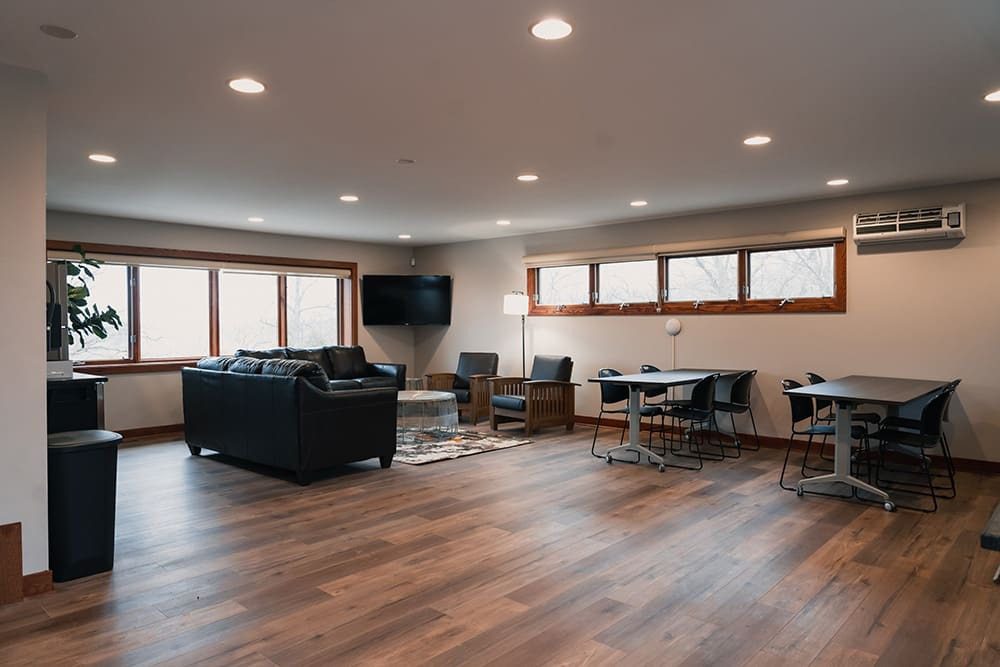

The difference between inpatient rehab in Illinois and residential drug rehab centers in Illinois lies in the intensity of the substance use disorder treatment, along with the environment in which the treatment is carried out. Inpatient centers in Illinois consist of 24/7 monitoring, while residential substance abuse treatment is technically 24/7. In terms of environment, inpatient drug rehab in Illinois has more of a hospital setting and residential care is a more comfortable and home-like setting.
Another key element to remember with inpatient and residential treatment is the length of the treatment. An inpatient rehab is typically a short-term process while residential presents the opportunity to be ongoing. The process depends on how well the individual responds to substance abuse and mental health treatment.
Does Medicare Cover Residential Substance Abuse Treatment?
Medicare health insurance plans in Chicago, IL can be utilized to cover residential substance abuse treatment. There are rules about the specific providers that individuals can use with Medicare and some types of behavioral therapy are not covered. The most effective route to take would be to get in contact with Medicare directly to find out more information.
At Northern Illinois Recovery, we’re committed to helping our clients overcome addiction. To that end, we offer a wide array of options at our residential treatment program, including:
- Alcohol use disorder
- Heroin use disorder
- Opioid use disorder
- Prescription drug use disorder
- Cocaine use disorder
- Meth use disorder
Don’t live with addiction any longer. Please contact Northern Illinois Recovery Center today and verify your insurance with us to learn more about our inpatient options.
Recovery Awaits At Northern Illinois Recovery
At Northern Illinois Recovery, we are proud to offer comprehensive treatment services for those who want to recover from addiction and mental health conditions. Through our addiction treatment programs in Illinois, our clients learn how to manage triggers and temptations and have a healthier, happier life. Please contact us today to learn more about our residential addiction treatment program.


Reach Out to Our Inpatient Drug Rehab in Illinois Today
If you or a loved one is suffering from an addiction of any kind, whether it be a substance addiction or a behavioral addiction, contact us today.


Licensed Physician and Surgeon
Dr. Beth Dunlap, a board-certified addiction medicine and family medicine physician, and is the medical director at Northern Illinois Recovery Center. She is responsible for overseeing all the integrated medical services at both campuses. Beth completed medical school, residency, and fellowship at Northwestern University, where she continues to serve on the faculty as a member of the Department of Family and Community Medicine. She has extensive experience in addiction medicine at all levels of care, and her clinical interests include integrated primary care and addiction medicine, harm reduction, and medication-assisted treatment.

